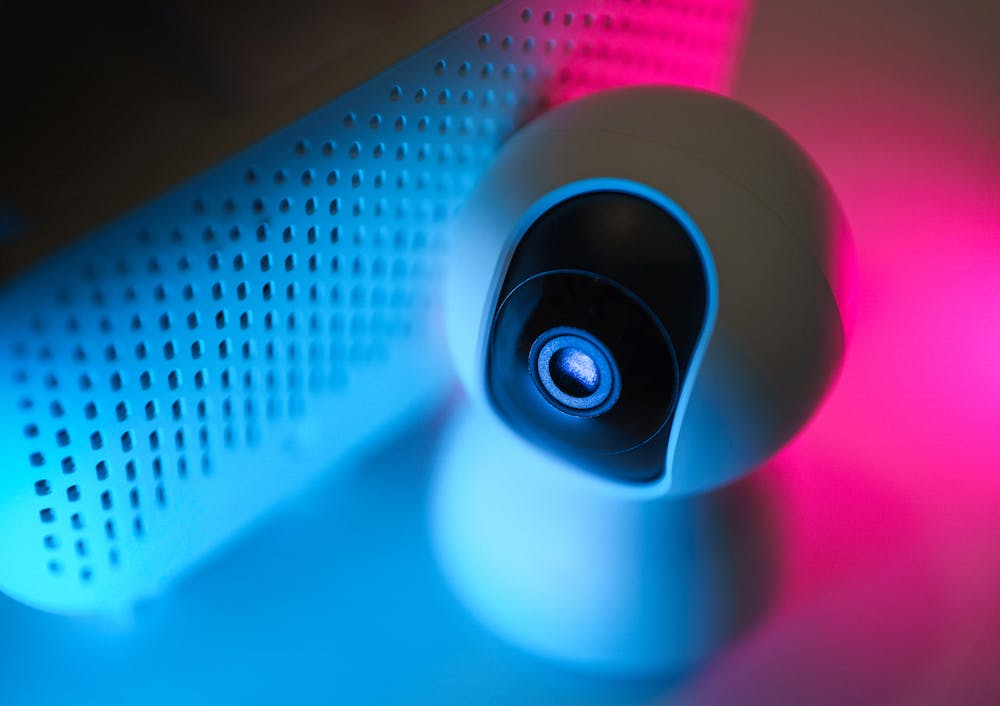Event management today goes beyond organizing schedules and catering services. You need to create a safe and secure environment while still allowing for flexibility and maximizing operational efficiency.
And IP camera software in event security reflect their role as a critical technological solution. Let’s explore the unique potential, benefits, and the advanced ways such tools ensure safety while streamlining event management.
Rethinking Security: The Role of IP Camera Software in Modern Events
An IP camera tool is not just about monitoring—it’s about preventing incidents, enhancing communication, and delivering actionable insights. Here’s how it’s transforming the field:
1. Predictive Analytics: Staying Ahead of Threats
Machine learning algorithms enables such programs to predict potential threats by analyzing crowd behavior. For example:
- Heatmaps track attendee movement, identifying overcrowded areas that could lead to bottlenecks or stampedes.
- Behavior pattern recognition detects anomalies, such as an individual loitering near restricted zones.
Such proactive monitoring helps event managers take preventive measures rather than react after an incident occurs.
2. Multi-Site Event Management
For events spanning multiple locations, such as marathons or city-wide festivals, IP camera software provides centralized control. Using cloud-based systems, security teams can:
- Monitor all venues from a single dashboard.
- Collaborate remotely with local on-ground staff.
- Share real-time footage with emergency responders.
This feature is especially useful for hybrid events, where some activities are on-site, and others are virtual, requiring seamless integration of physical and digital security.
Advanced Features to Look For in Event-Specific IP Camera Software
1. Geofence Alerts
Geofencing allows event managers to set virtual boundaries. When individuals cross these boundaries (e.g., entering restricted zones), the system triggers instant alerts.
2. Temporary User Access
Unlike static surveillance systems, event-specific IP camera software allows temporary permissions for:
- Third-party security personnel
- Contractors (e.g., stage setup teams)
- Short-term staff
3. AI-Powered Incident Tagging
Advanced IP camera systems can auto-tag incidents in the footage based on predefined criteria. For example:
- A fight breaking out in the audience
- Someone tampering with equipment
- Emergency exits being blocked
These tags make it easier to review footage and compile reports after the event.
Leveraging IP Camera Software for Operational Benefits Beyond Security
While safety is the primary goal, even IP camera software for PC for free download delivers operational efficiencies that improve the overall success of events:
1. Improved Crowd Experience
With real-time insights from surveillance feeds, event organizers can adjust operations to enhance the attendee experience:
- Redirecting foot traffic to avoid long queues at entrances
- Monitoring food court lines and deploying more staff to speed up service
- Ensuring safety while maintaining the flow of foot traffic to restrooms, exits, and entertainment zones
This dual focus on safety and experience builds a reputation for well-organized events.
2. Marketing Analytics from Surveillance Data
The data captured by IP cameras can provide insights into attendee behavior patterns:
- Which areas attracted the most foot traffic?
- How long did attendees stay at key attractions?
- What times of the day saw the highest engagement?
The insights help marketers optimize event layouts, sponsor placement, and future event planning.
3. Sustainable Event Practices
For events aiming for sustainability, IP camera software helps track crowd behavior to:
- Reduce waste by monitoring food consumption areas
- Avoid overstaffing or overstocking based on real-time occupancy levels
Overcoming Common Pitfalls in IP Camera Deployment
Despite its benefits, there are challenges to deploying IP camera systems effectively. Here’s how to address them:
1. Bandwidth Optimization
Live streaming video requires robust network infrastructure. Deploying edge computing solutions can offload some processing to local devices, reducing strain on central servers.
2. Privacy Concerns
Ensure compliance with data privacy laws, such as GDPR, by:
- Displaying notices about camera usage
- Encrypting footage to prevent unauthorized access
- Retaining footage only for as long as necessary
3. Rapid Setup for Temporary Events
For one-day or weekend events, quick deployment is critical. Choose IP camera systems with plug-and-play designs and minimal cabling needs, such as PoE (Power over Ethernet) cameras.
Industry-Specific Use Cases: Real Value Delivered
Here’s how IP camera software creates measurable value across different event types:
1. Trade Shows and Expositions
At trade shows, exhibitors often showcase high-value products. IP camera software:
- Protects assets with tamper detection and 24/7 monitoring
- Tracks attendee interest to identify popular booths, which can be shared as feedback
2. Music Festivals
Music festivals involve thousands of people spread across large venues. With pan-tilt-zoom (PTZ) cameras, security teams can:
- Zoom in on suspicious activity, even in massive crowds
- Monitor parking lots to prevent vandalism or theft
Additionally, thermal cameras can detect heat signatures during night events, ensuring crowd safety in low-light conditions.
3. Corporate Conferences
For high-stakes conferences with VIPs or proprietary content, programs connected to IP cameras ensure:
- Access control verification for attendees and staff
- Encrypted video feeds to maintain data confidentiality
By integrating with digital platforms, IP camera software can even alert IT teams about cybersecurity risks tied to physical breaches.
A Vision for the Future: IP Cameras and Emerging Technologies
The future of event management will see IP camera systems integrated with emerging technologies, such as:
- IoT Devices: Cameras connected to IoT sensors for monitoring temperature, air quality, and noise levels in real time
- Augmented Reality (AR): Security personnel wearing AR glasses can view live camera feeds overlaid with relevant alerts and analytics
- 5G Networks: With ultra-fast speeds, 5G will enable real-time streaming of 4K video feeds, even in crowded areas
Conclusion
IP camera software is a transformative technology that enhances safety, optimizes operations, and delivers valuable data-driven insights. Whether you’re managing a corporate conference, a music festival, or a trade show, this software ensures a seamless, secure experience for both attendees and organizers.


